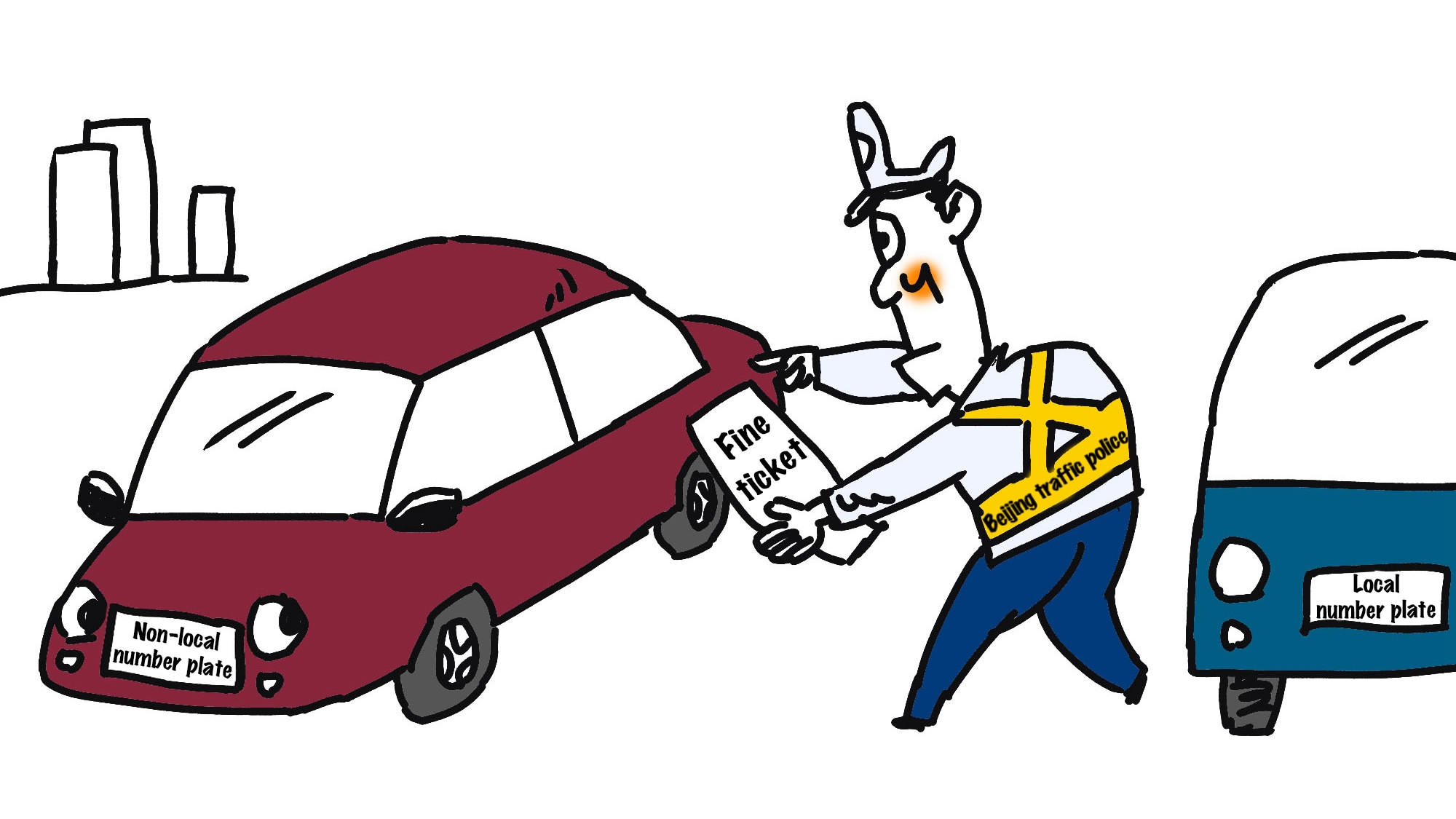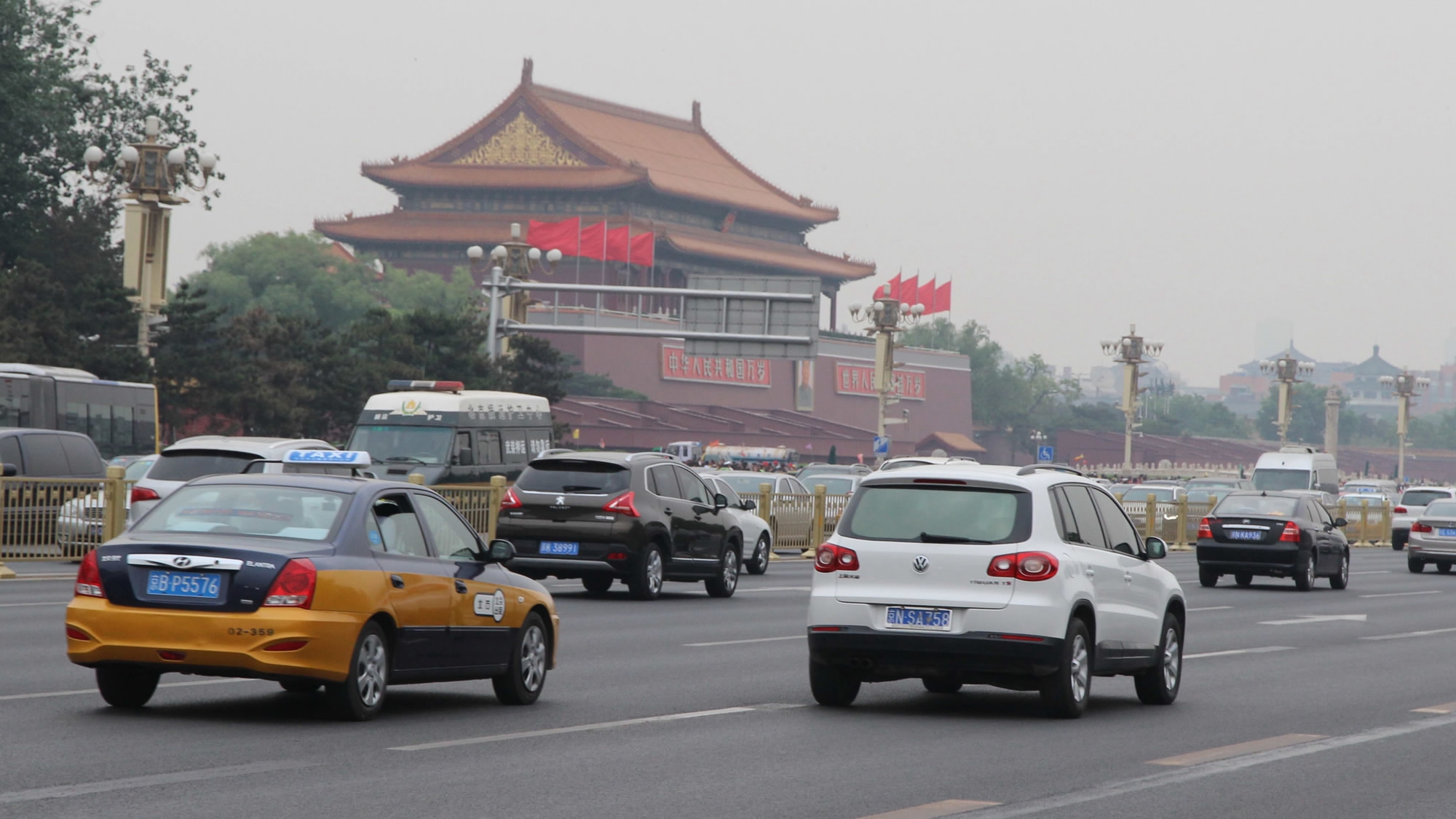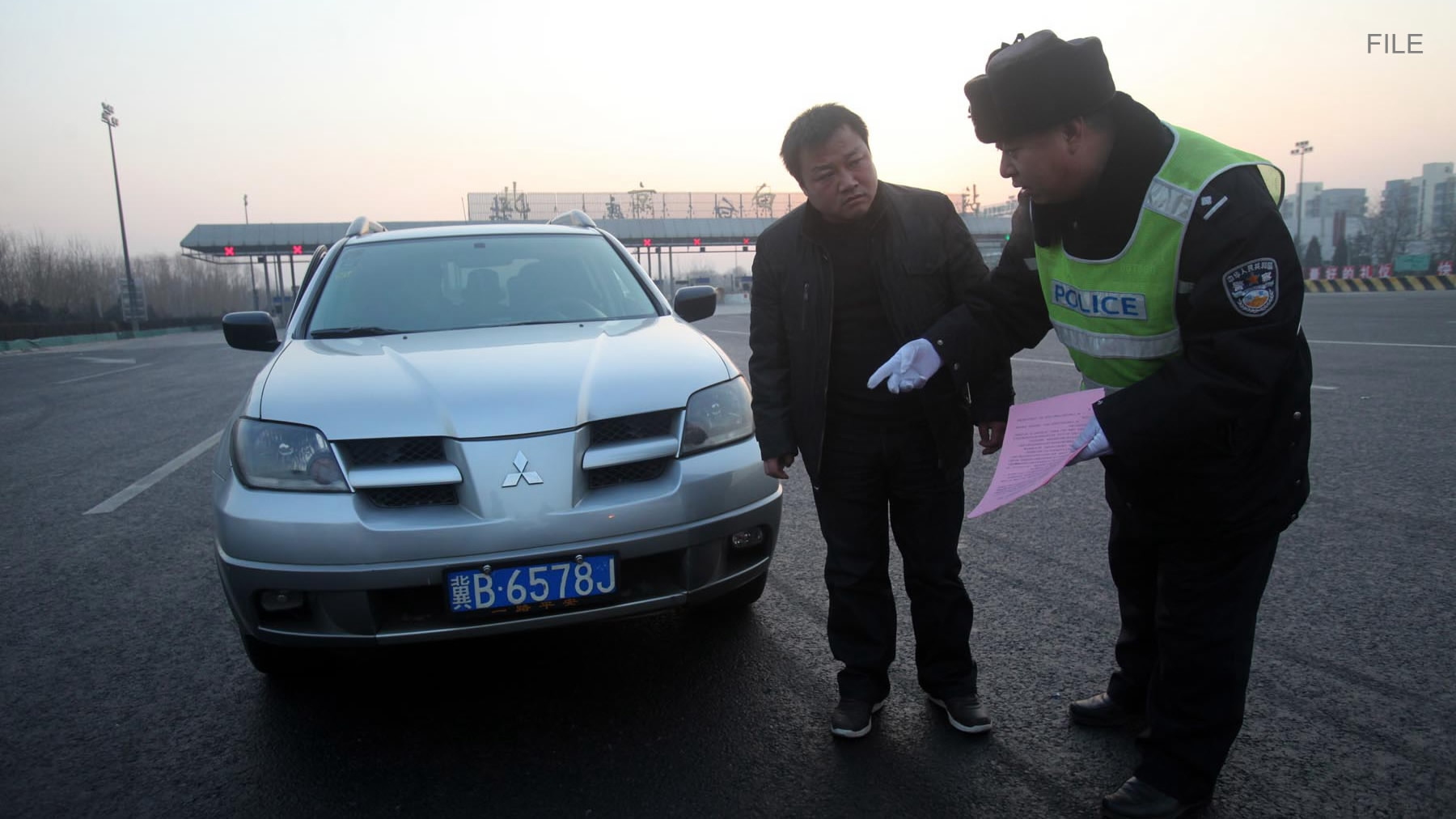A driver from east China’s Shandong Province has taken road rage from the streets of Beijing to the court, petitioning for a review of what she called “unconstitutional” traffic laws in the capital.
The driver, identified by her surname Wang, took to court after she was fined 100 yuan (around 15 US dollars) in October for driving her car with out-of-town plate on a road in Beijing restricted to such vehicles during certain periods of the day.
The Chang’an Avenue, a major thoroughfare that cuts through the heart of Beijing on which the driver was riding, is one of the roads on which cars registered outside the city are banned between 6 a.m. and 10 p.m. every day, according to rules introduced by Beijing's municipal government in 2015.

VCG Photo
The regulations are part of larger road space rationing packages implemented gradually throughout the years by the local government to tackle the city’s notorious hellish traffic gridlocks and choking pollution, while ensuring road safety. They include the “odd-even rule” according to which cars’ access to roads depends on the last digit of their plates, increases in parking fees, curbs on vehicle purchase programs supported by the government, and a ceiling limiting the number of plates issued every year, among others.
In the last decade, Beijing has seen an increase in the number of new cars that is disproportional with its roads’ capacity.
Between 2004 and 2015, Beijing-registered cars have increased by 150 percent to five million vehicles, while driving roads expanded by some 58 percent.

The section of Chang'an Avenue in front of Tian'anmen /VCG Photo
The annual quota on new car plates in Beijing meant that prospective drivers depended on lottery to get their hands on a registration plate – luck is a significant role as rates of success are estimated at less than one percent. The ceiling also meant that more car owners are circumventing the limitations by having their vehicles registered out of the town.
Wang was edging closer to the Tian’anmen section of the road, when she was asked to pull over after traffic police of Dongcheng District detected that her plate was from Shandong. Along with the fine, three penalty points were deducted from her driving license.
The officer explained to her the city’s traffic control regulations, but Wang was not convinced.

A car with a non-Beijing number plate is being checked by police. /VCG Photo
She filed a lawsuit to the Dongcheng District Court a month after the incident and argued that her right to use the road had been violated by the Beijing traffic police.
The court, however, ruled against her, stating that the penalty was in line with the regulations that prohibit cars with temporary numbers or non-local plates from accessing certain roads around the city during certain periods of time.
Wang was still not convinced. She appealed again earlier this month and requested, this time around, the court review the 2015 traffic guidelines.
According to the driver, the regulations broke the country’s constitution as she was not treated equally to other drivers as stipulated by the Constitution of the People's Republic Of China, which states that “all citizens of the People's Republic of China are equal before the law.”
The defendant, Dongcheng traffic police, explained that the limitations were drafted in accordance with the country’s law on road safety and are legally valid.
Whether Wang’s motion will hit a dead end or gain traction is unknown, as the court is yet to reach a verdict in this unprecedented case.









